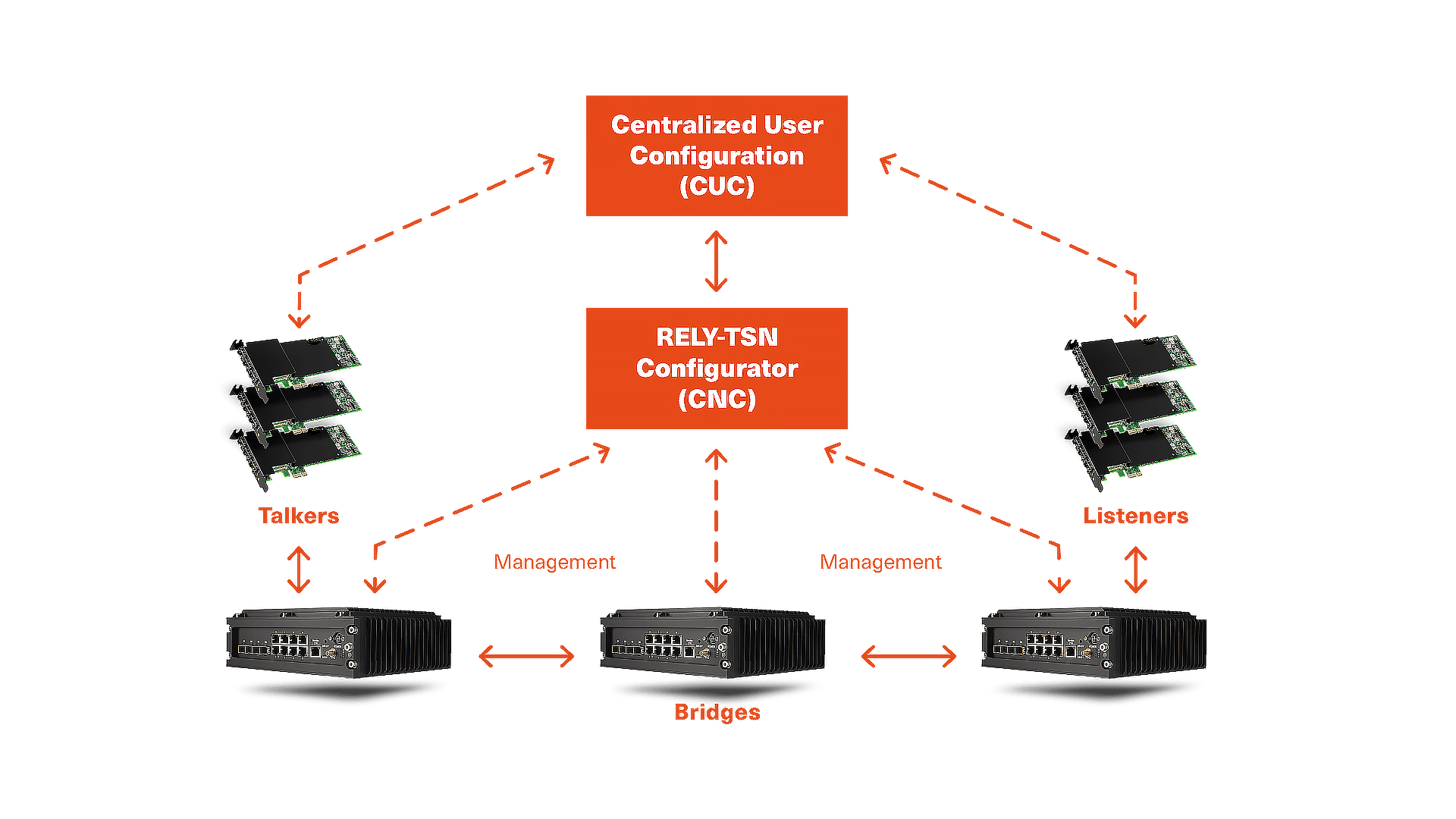Overview
Time-Sensitive Networking (TSN) is the new generation of Ethernet that allows hard real-time, soft real-time and best effort traffic to be combined on the same network and is expected to replace current networks in the future. However, making proper use of all the mechanisms it offers can be very complicated, and that is why the configuration plane of a TSN network is one of the most active topics in the standardization groups.
SOC-E has been working in a partnership with a company with more than 15 years of experience in modelling, simulation and automated configuration of real-time communication architectures to develop a TSN modelling and configuration tool, that generates the optimal configuration of network devices, guaranteeing that latency constraints are met.
Key Features
- User-Friendly Interface based in a “push-button” approach, for simplifying and saving time in the configuration of the network
- Optimal and accurate network configuration for avoiding over-provisioning of resources
- Based in open standards and compatible with the standard TSN solutions available in the market
- Proven technology relying on mathematical background of network calculus for aeronautic sector
Technical Specifications
- Modelling Function
- Accurate definition and characterisation of the traffic flows and their requirements
- Network devices and topology modelling through an intuitive GUI or by importing existing descriptions (YANG, CSV)
- RelyUm TSN devices models preloaded in the tool
- Configuration generation
- Automated configuration generation
- Easily generate deployment-ready configurations with a “push-button” approach
- Ensure optimal network performance
- TSN mechanisms supported for generating the optimal configuration:
- IEEE 802.1AS: Timing and Synchronization
- IEEE 802.1p: QoS and traffic classification
- IEEE 802.1Qav: Credit Based Shaper
- IEEE 802.1Qbv: Time Aware Shaper
- IEEE 802.1Qbu: Frame Preemption
- IEEE 802.1Qci: Per-Stream Filtering and Policing
- IEEE 802.1CB: Frame Replication and Elimination for Reliability
- Configuration: YANG data models (IEEE 802.1Qcp, IEEE P802.1Qcw, IEEE P802.1CBcv)
- Export Function
- Available formats for exporting the configurations:
- XML-YANG export: export configurations in XML-YANG format for seamless integration and compatibility
- Excel and CSV export: provide flexibility by exporting configurations in Excel or CSV formats
- Netconf protocol support for seamless integration with RelyUm TSN devices or other TSN devices
- Licensing Terms
- Two licensing models:
- Single-computer single-login license: the software is used on a single user account (i.e., login) on a single computer
- Floating license: allows multiple users on a network to share the same license, with no restriction on the number of different users
- Includes perpetual license, 12 months of support and maintenance, and initial training
- Technical Requirements
- Windows (32 and 64-bit, Win8.1 and Win10), Linux (64bit, Debian 9 and Ubuntu 16.04 and later), and OS X (64bit, v10.11 and later)
- Java8 or above
- At least a 4-core CPU and 8GB of RAM memory
Technical Support, Verification & Deliverables
Models
| Features | RELY-TSN.Configurator | RELY-TSN.Configurator+ | VIEWER |
|---|---|---|---|
| Modelling | 1 variant | 1 variant | |
| IEEE 802.1AS | ✓ | ✓ | |
| IEEE 802.1Qav | ✓ | ✓ | |
| IEEE 802.1Qbv | ✓ | ✓ | |
| IEEE 802.1Qci | ✓ | ||
| IEEE 802.1CB | ✓ | ||
| Fixed configuration | ✓ | ✓ | |
| Analysis | ✓ | ||
| Link load indicators | ✓ | ||
| Memory indicators | ✓ | ||
| Plots | ✓ | ||
| YANG models | ✓ | ✓ | ✓ |
| Import (.csv) | ✓ | ✓ |
For more information, please contact your sales representative.
